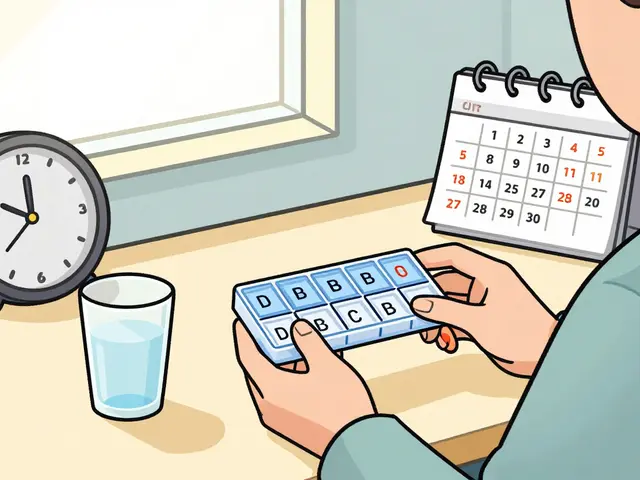Medication use: Smart, safe, everyday tips
Taking medicine sounds simple, but mistakes happen. This page gathers real, practical advice on medication use you can start using today. Whether you take daily prescriptions, occasional antibiotics, or buy meds online, these tips cut confusion and lower risk.
Simple rules for safe medication use
Always follow your prescriber's directions and the medication label. If the label conflicts with what your doctor told you, ask—don’t guess. Keep a written plan: drug name, dose, time, and why you take it. That list saves you from mistakes and helps any clinician who treats you later.
Never double-dose to catch up. If you miss a dose, check the leaflet or call your pharmacist for a clear answer. Some drugs tolerate late doses, others can cause harm if doubled. Timing matters: some meds work best with food, others on an empty stomach. Read instructions and set alarms.
Know common side effects and what to do. Mild side effects like nausea or drowsiness often fade, but signs like severe rash, breathing trouble, or fainting need immediate medical attention. Keep emergency contacts and know when to stop the drug and seek help.
Buying, storing, and checking medicines
When buying online, use licensed pharmacies only. Look for a physical address, pharmacist contact, and clear prescription requirements. Avoid sites that sell controlled drugs without a prescription or offer suspiciously low prices. A quick check: try calling the listed phone number before ordering.
Store meds in a cool, dry place unless the label says otherwise. Some need refrigeration. Keep medicines out of reach of children and pets. Check expiry dates before use; expired drugs can be less effective or unsafe. Dispose of old medicine at take-back sites, not in the bin or sink.
Watch for drug interactions. Bring your full medication list—including vitamins, herbs, and over-the-counter drugs—to every appointment. Combine certain drugs can raise bleeding risk, lower heart rate, or blunt treatment effects. Your pharmacist can run an interaction check in minutes.
Adjust doses for special situations. Older adults, pregnant people, and those with kidney or liver problems often need different dosing. Talk openly about alcohol, tobacco, and recreational drug use—these affect medication safety and effectiveness.
Keep clear records and use reminders. Pill boxes, phone alarms, and apps cut missed doses. Share your list with family members who help manage your care. If you start a new symptom after beginning a medication, write the start date and discuss it with your provider.
Ask these quick questions at visits: what is the exact dose and how long; what are main side effects; interactions to avoid; what to do if I miss a dose; any lab tests needed; will this affect driving or pregnancy? Keep answers on your phone so you can check later and share with caregivers. Stay curious, stay safe.

As a blogger, I recently delved into the topic of contraindications of Ketorolac Tromethamine use. I found out that this nonsteroidal anti-inflammatory drug (NSAID) is effective in providing short-term pain relief, but it's crucial to be aware of the risks involved. It's not recommended for those with a history of gastrointestinal bleeding, kidney issues, or hypersensitivity to NSAIDs. Additionally, it should be avoided in the perioperative period of coronary artery bypass graft surgery and in those with a history of asthma. It's essential to consult with a healthcare professional before using Ketorolac Tromethamine to ensure it's safe and appropriate for your individual needs.






